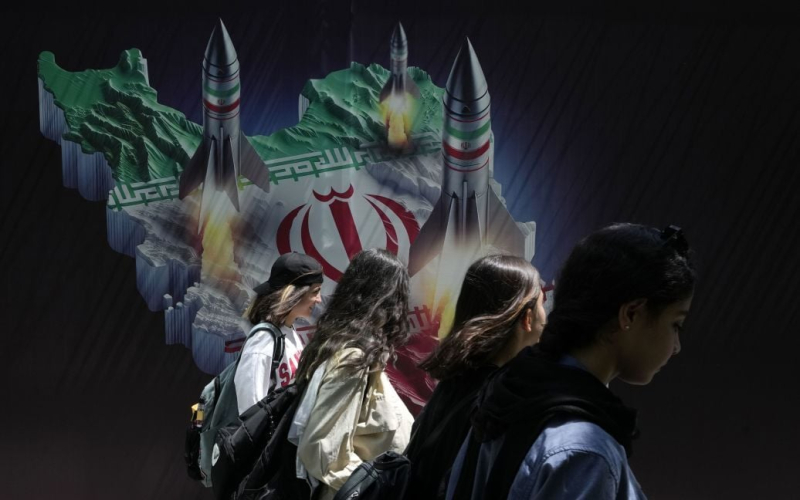
At the funeral of Hamas political leader Ismail Haniyeh in Qatar, there were calls for a "day of anger".
Israel's war in the Gaza Strip could escalate into a full-fledged Middle East conflict, as Iran's Supreme Leader Ayatollah Ali Khamenei has already given the order to prepare an attack in response to the assassination of Hamas political leader Ismail Haniyeh in Tehran. On Friday, August 2, there were calls for a “day of anger” at Haniyeh's funeral in Qatar. US President Joe Biden has promised to support Israel's defense against threats. Meanwhile, international airlines have stopped flying to Tel Aviv, and neighboring countries have begun to close their airspace.
ТСН.ua has collected the latest information on the situation in the Middle East, which threatens to break out into a large-scale military conflict.
Closed skies over the Middle East
Air India has become the latest international carrier to suspend flights to Tel Aviv.
Italian airline ITA Airways has previously done so, joining several airlines including United and Delta, which have cancelled flights to Israel in recent days due to security concerns.
“Due to geopolitical developments in the Middle East and to ensure the safety of its passengers and crew, ITA Airways has decided to suspend flights to and from Tel Aviv until August 6 inclusive,” the statement said.
Germany's Lufthansa Group has extended the suspension of flights to the Lebanese capital Beirut until at least Monday “due to current events in the Middle East.”
Egypt and Jordan have also closed their skies to flights and have also stated that they will counter any violation of their airspace, regardless of where the projectile is heading.
It also became known that Greece has closed its airspace since 18:00 on Friday, August 2.
How Israel is preparing
Amid rising tensions in the Middle East Rear Admiral Daniel Hagari, a spokesman for the Israeli military, held a press conference Thursday evening to reassure the public and say the Israel Defense Forces (IDF) is prepared to deal with potential threats.
“The IDF is on maximum alert, both defensively and offensively. Our forces are deployed in the air, sea and land, ready to face any scenario, with attack plans that can be implemented immediately,” he said.
Amid heightened regional tensions, Israelis have received instructions on what to do in the event of attacks on the country, and supermarkets are reporting a surge in sales of basic items.
Israeli supermarket chain Victory reported that sales of some items have increased by 30% compared to normal sales. CNN reported that people are mainly buying canned goods, cereals, pasta, toilet paper, frozen meat, bottled water and sanitary napkins.
The Jerusalem Municipality has issued instructions to people on what to do in the event of an attack on the city, distributing a file with a list of parking spaces that will be used as both shelters and a list of bomb shelters. It says that residents should be able to reach the shelters within 90 seconds.
Residents are also advised to stock up on water and food for three days, in addition to medicine, and buy batteries and flashlights.
“Residents should be prepared for power outages that could last for several days. They should also be prepared to stay in bomb shelters for several days,” the file says.
Israeli Prime Minister Benjamin Netanyahu said in an address to the nation: “We are prepared for any scenario.”
US Reaction
In a phone call with Israeli Prime Minister Benjamin Netanyahu on Thursday evening, Joe Biden said the United States would “support Israel's defense against threats,” including through “the deployment of new American defense forces.”
Washington officials believe an Iranian attack could happen in the coming days. The Pentagon is currently discussing with U.S. Central Command adjustments to the posture of U.S. forces in the region.
Among the options under consideration are the redeployment of the USS Theodore Roosevelt carrier battle group and the potential deployment of the USS Wasp amphibious assault ship to the Mediterranean.
White House National Security Adviser John Kirby said the United States is prepared to shift resources to the Middle East if necessary.
“[The US] is always reviewing our force posture in the Middle East to make sure we have what we need to defend ourselves, our troops, our facilities, and our allies and partners like Israel. But I don’t think it would be good for me to go into detail,” Kirby said on Friday, August 2.
He noted, however, that the United States had heard Iran’s supreme leader’s statement about his intention to avenge the killing of the Hamas leader in Tehran and carry out another attack on Israel.
Dangerous Iran
On Friday, August 2, the French Foreign Ministry called on its citizens who are in that country to “leave as soon as possible” due to the increased risk of military escalation in the region.
The statement noted that all of Iran “is marked in red on travel advisory card”, meaning a strong recommendation to French citizens “not to travel to Iran for any reason”.
Iran's Islamic Revolutionary Guard Corps (IRGC) has reportedly promised a “severe and painful” response to the killing of Ismail Ghanieh, a political leader of the Hamas terrorist group who was killed in Tehran in an attack attributed to Israel.
A significant response is likely to come from multiple fronts in the coming days, potentially coordinated by Iran with its allies in the region: Hezbollah, the Houthi rebels in Yemen, and Shiite militias in Syria and Iraq.
Iran's Supreme Leader Ayatollah Ali Khamenei has ordered a direct strike on Israel in response to the assassination of Hamas leader Ismail Haniyeh in Tehran.
Related Topics:
More News

